(since October 20, 2000)
| Street Trees of Tokyo |
|---|
Whether you’re just looking about neighbourhoods, or strolling along streets, trees provide a kind of mental refreshment for people living in big cities of Japan such as Tokyo or Osaka, where there is little chance of contacting "nature". In the case of Tokyo, more than 70 species of trees are planted as street trees and the total number of the street trees is approximately 950,000 (as of April, 2015). However the number of street trees per head is only 0.07, based on the statistics. Street trees sometimes represent the characteristics of the local flora and impress tourists. The pine trees (Pinus densiflora) along the main road between Hakodate and Ohnuma in Hokkaido, Japanese ceders (Cryptomeria japonica) along the Nikko Highway in Japan, and plane trees in Kensington Street in London were especially impressive for me. Unfortunately, most of the street trees in Japan are eccessively pruned under the excuse of preventing toppling or ‘windthrow’during the typhoon season in autum. Consequently, street trees in Japan are, on average, comparatively small. Even so, there are several places where street trees, together with the surrounding buildings, are creating beautiful scenery. In this website, I want to introduce to you the major street trees of Tokyo through my photographs. I hope you enjoy my presentation.
Author : Shigemitsu Araki
E-mail :s-araki@interlink.or.jp
Tel & fax : 81-3-3815-0770
Ginkgo is the " Tree of Tokyo".
Although fruit of ginkgo can cause skin irritation, its nut is edible and is
commonly used as a
ingredient of "chawan-mushi( a savory steamed egg custard with assorted
ingredients)".
Platanus acerifolia is
a hybrid species
of platanus orientalis and platanus occidentalis and is widely used as
street trees throughout
the world. (Cornus florida)-----Hanamizuki
It is well known that dog wood( Cornus florida ) was first
introduced to Japan
from United States in 1915 in return to the cherry trees presented to
U.S.A (Washington D.C.)
by Tokyo city. The first dog wood from United States, planted in Hibiya
park of Tokyo, is
still alive. Ranking of dog wood (cornus florida) as street trees in
Tokyo has risen shrply
in recent years, probably because of its lovely flowers.
Among several species
of maples, acerbuergeriana is exclucively used as street trees in Tokyo.
Origin of this tree is southeast China and it was imported to Japan in early 18th century.
(Prunus yedoensis)-----Someiyoshino Cherry tree or "sakura" can be divived into several
species( refer to
the "Prunum database"in the Links ). Among them, I personally prefer
"var.Lannesiana(
satozakura )". However,"Prunus yedoensis( somei-yoshino )" is the most
popular species
of sakura in Japan.
Omotesandou in
Shibuya-ku is one of the
most fancy street in Tokyo and is always crowded with youngsters.
Although it was terminated a few years ago, tree illumination of this
street in winter time was also very attractive.
Camphor
can be extracted from leaves and the twigs of this tree and it smells
good when its leaves are
rubbed or wrinkled. Japanese
pagoda tree looks like "false acacia" very much, excepting its flowering
season. Origin of this tree is China and it is sometimes called Chinese scholar tree.
Darkred fruit of this tree is edible(sour-sweet).
Origin of sweetgum is U.S.A(New Jersey to Texas and Florida).
Japanese name "yuri no ki" can literally be translated as "lily
tree". Tulip tree
is also commonly called "hanten-boku(hanten tree)" in Japan, becuse of
the resemblance of
its leaf to "hanten (Japanese style workmans coat)".
Origin of kobus magnolia was most probably named after the
fact that the shape of the bud resembles "kobushi (fist)". The lightly fragrant blooms, which
appear all over the tree in spring before the new leaves unfold, are ivory-colored to pink and 5-10 cm in diameter.
Phoenix tree is sometimes misunderstood as a family member of
"paulonia" in Japan,
because of its Japanese name "ao-giri( blue paulonia)".
French
name "marronnierr" is very popular throughout the world.The tree usually develops leaf scorch in
drought or disease (powdery mildew or blotch disease)during summer, causing leaves to drop. Although the scientific name is "babylonica", its origin
is supposed to be asia(probably China).
Leaves of weeping willow
is green over 10 months of a year( very close to "ever green"
). Bark of crape myrtle is thin and easily exfoliated by
mechnical impact, leaving very smooth(slippery) trunk. Japanese
name "saru-suberi
(monkey slip) is named after its slippery trunk.
Quercus myrsinaefolia is the most popular genus of oak in Kanto area.
Although the total
number of street trees
of Camellia japonica is ranked 20th(according to the 1997 statistics),
they are locally
planted in the remote island of Ohshima. On the other hand, as Camellia
sasanqua is widely
planted in the urban area of Tokyo, they are much more familiar for the
people living at the
center of Tokyo.
The number of sasannqua camellia used as street tree seems ro be
increasing , probably because of its long bloomig period.
Although false acacia grows rapidly and its flower is beatiful, it is not so widely adopted as street trees,
because it is not resistant to wind and is susceptible to desease. High quality charcoal "Binchotan" used for boiling water at tea
ceremony
is manufactured from this tree.
Japanese common name "shinju" means "tree of god".
Chinese quince(Pseudocydonia sinensis)
(Dendropanax trifidus )
Japanese linden(Tilia japonica)
Japanese stewartia(Stewartia pseudo-camellia)
yulan magnolia(Magnolia denudata)
peach(Prunus persica)
(Elaeocarpus sylvetris)
Links:(Reference:"Map of Street trees in Tokyo, 2004" by Tokyo Metropolitan
Office)
1.ginkgo(Ginkgo biloba)-----Icho
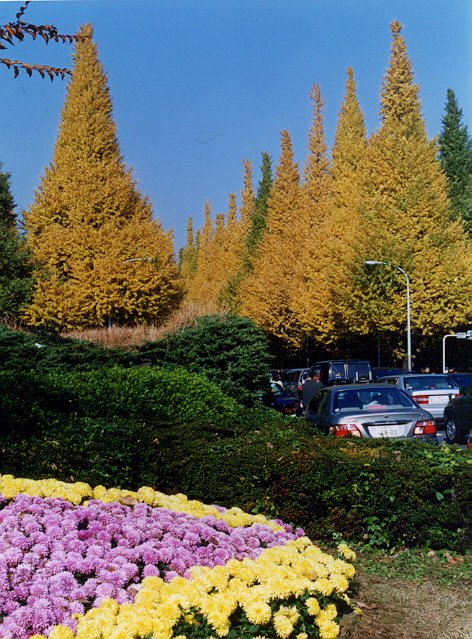
(Location : Jingu-gaien, Minato-ku)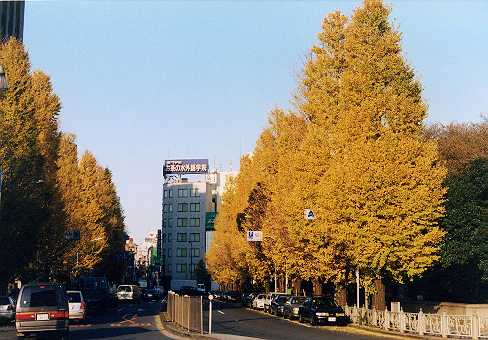
2.
plane tree, sycamore(Platanus acerifolia)-----Suzukakenoki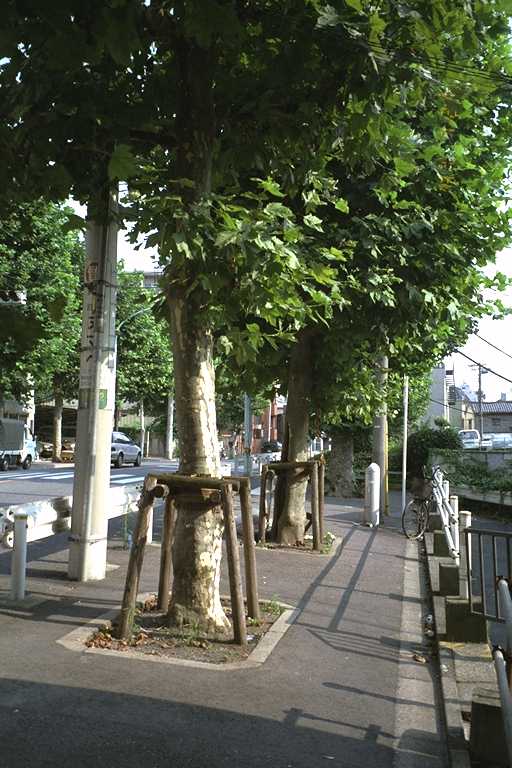
(Location : Ichigaya-Yanagicho, Shinjuku-ku)
3.flowering dogwood(Cornus florida )/Japanese dogwood
( Cornus kousa)
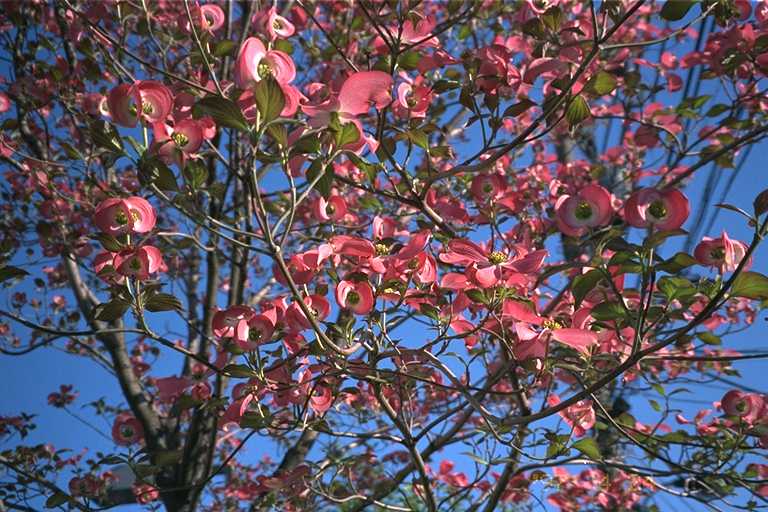
(Location : Kudan-kita, Chiyoda-ku)
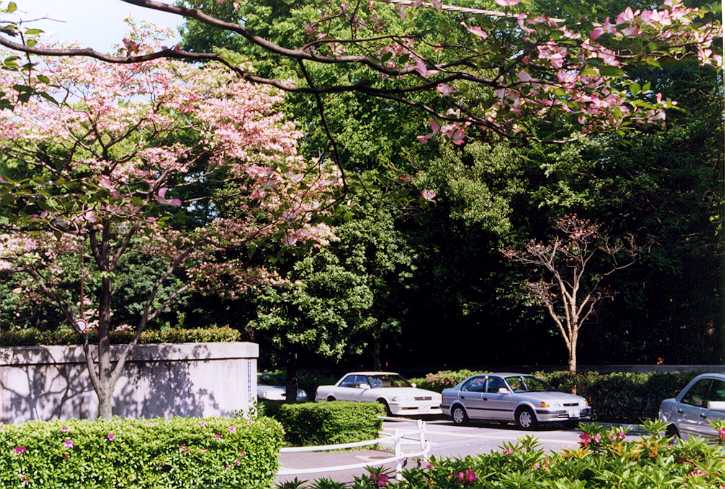
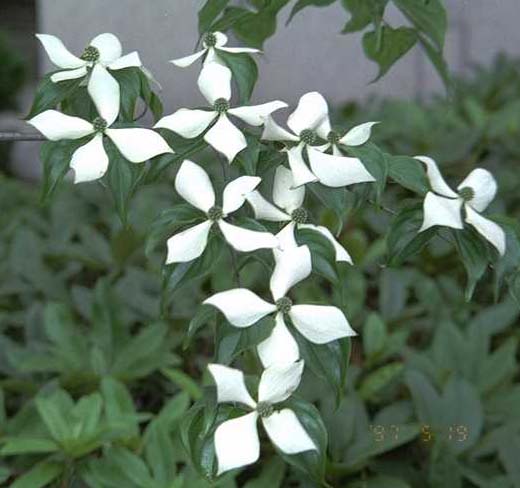
4.trident maple(Acer buergerianum)-----Tokaede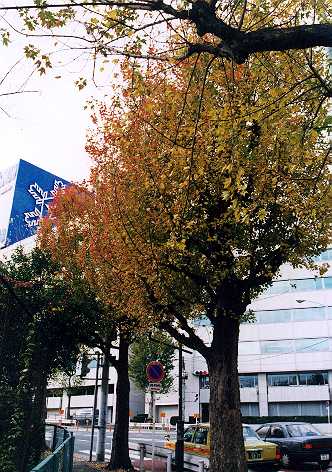
(Locatio : Gobancho, Chiyoda-ku)
5.cherry tree(Prunus yedoensis /
Prunus lannesiana)
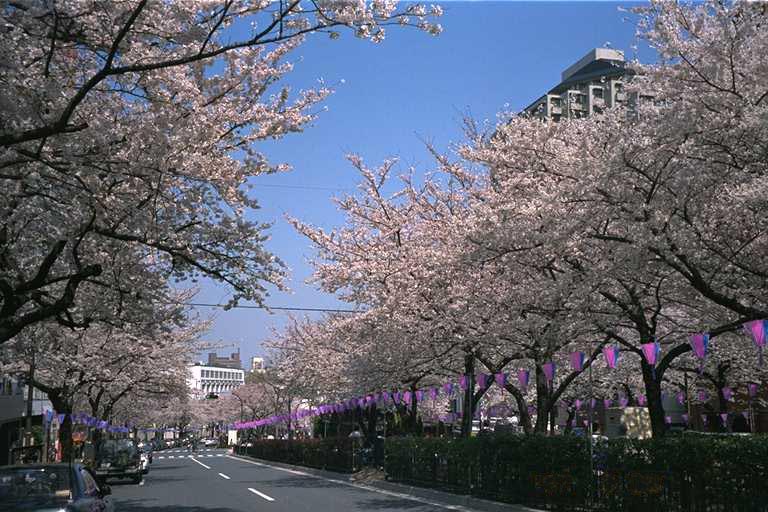
(Location : Koishikawa, Bunkyo-ku)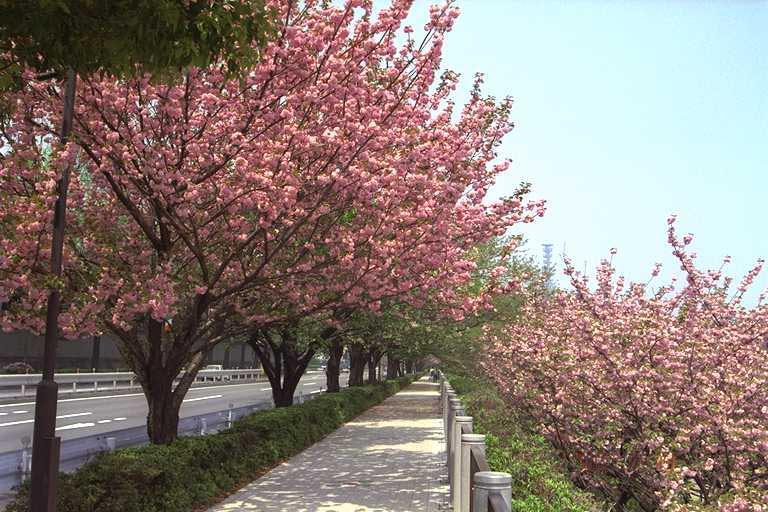
6.zelkova(Zelkova serrata)-----Keyaki
(Location : Omotesandou, Harajuku, Shibuya-ku)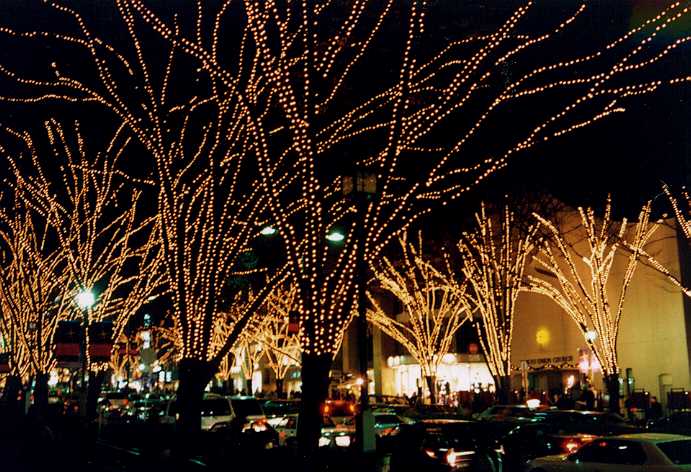
7.camphor
tree(Cinnamomum camphora)-----Kusunoki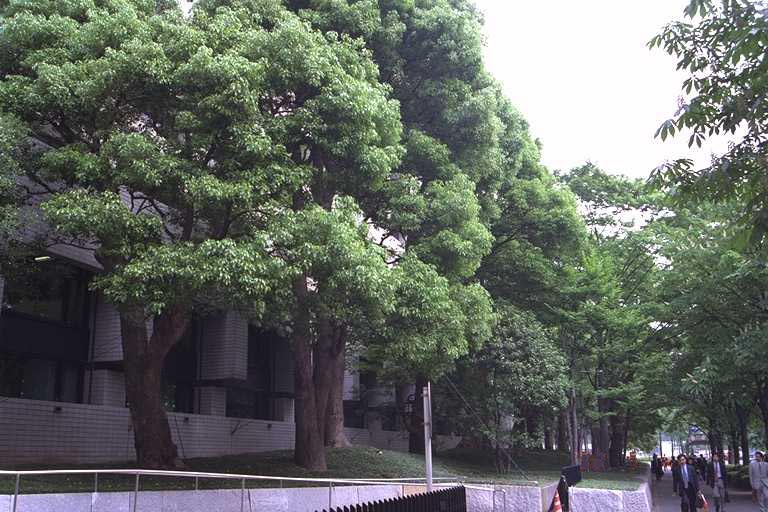
(Location : Sakurada Street, Chiyoda-ku, near the Police Headquater)
8.Japanese pagoda tree
(Sophora japonica)-----Enju
(Location : near Shiba Park, Minato-ku)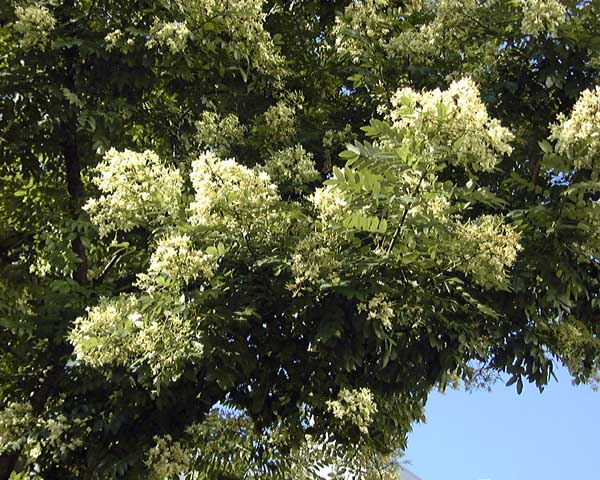
9.
pasania edulis or lithocarpus edulis(Pasania edulis)-----Matebashii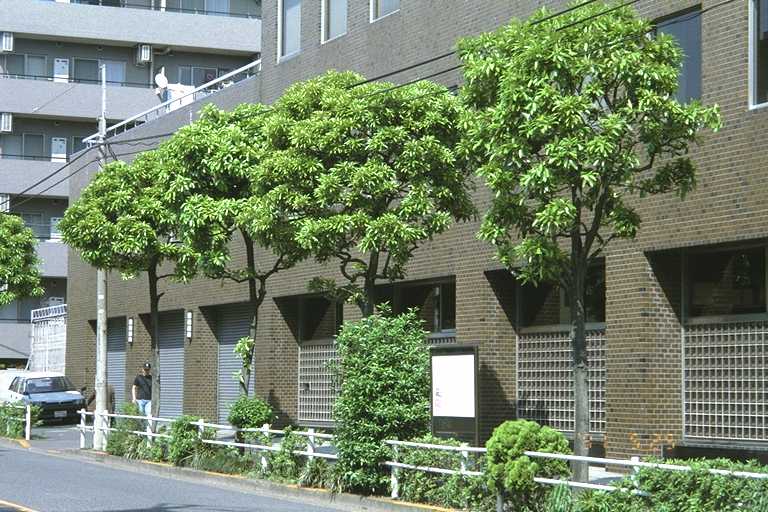
(Location : Hongo-6-chome, Bunkyo-ku)
10.wax myrtle(Myrica rubra)-----Yamamomo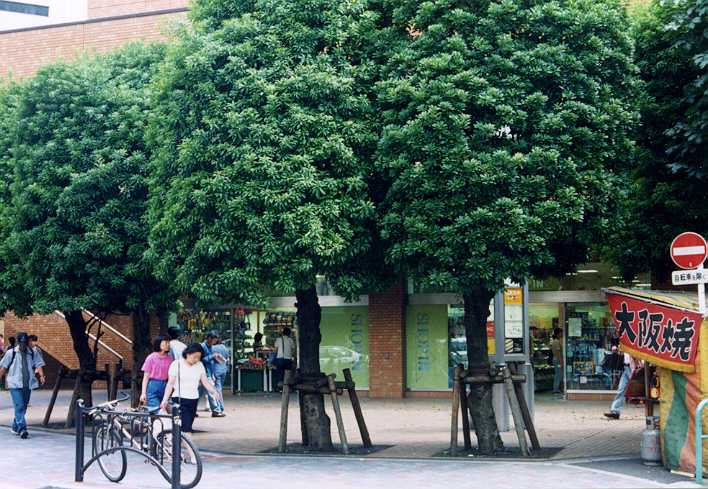
(Location : Kanda, Chiyoda-ku near the JR Ochanomizu Station)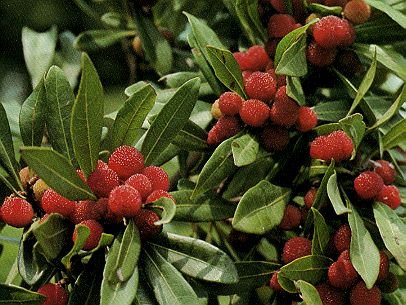
11.sweetgum(Liquidambar styraciflua)-----Momijibafu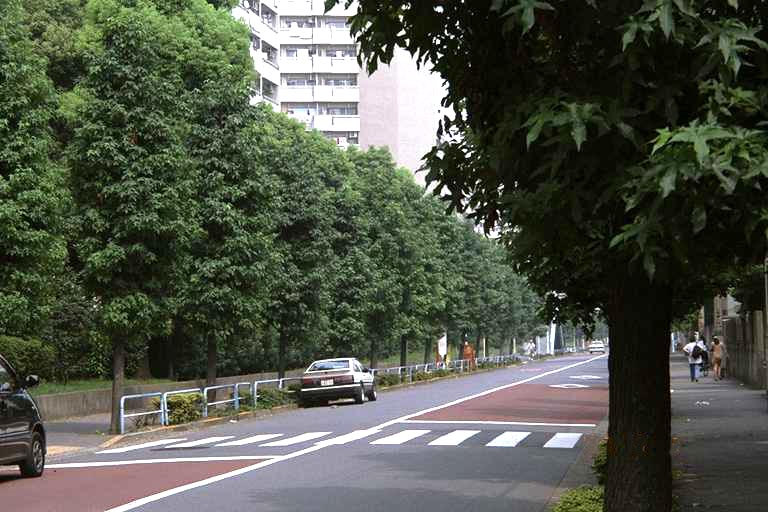
(Location : Takashimadaira, Itabashi-ku)
12.tulip tree(Linriodendron
tulipifera)-----Yurinoki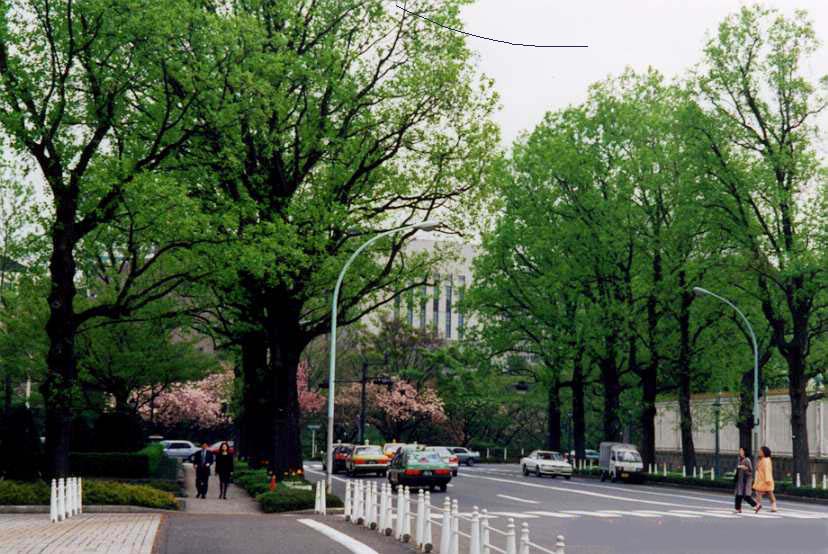
(Location : Motoakasaka, Minato-ku near the National Guesthouse)
13.kobus magnolia(Magnolia kobus)-----Kobushi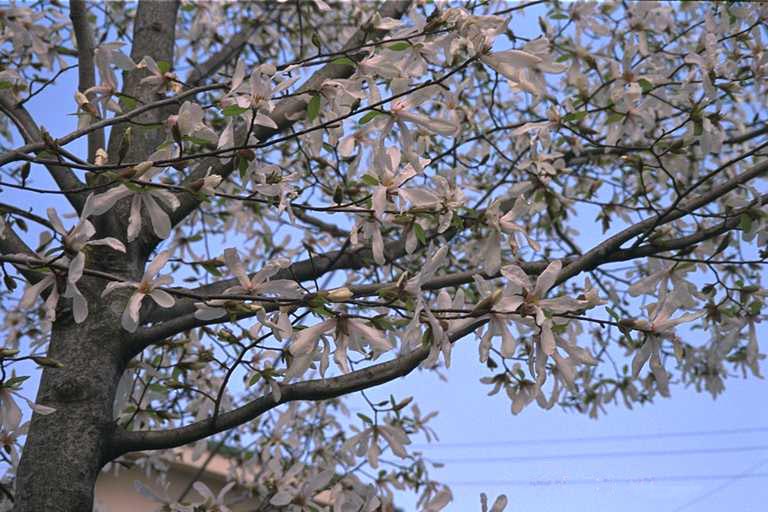
(Location : Ichinoe, Edogawa-ku)
14.phoenix tree or chinese parasoltree
(Firmiana platanifolia or Firmiana simplex)-----Aogiri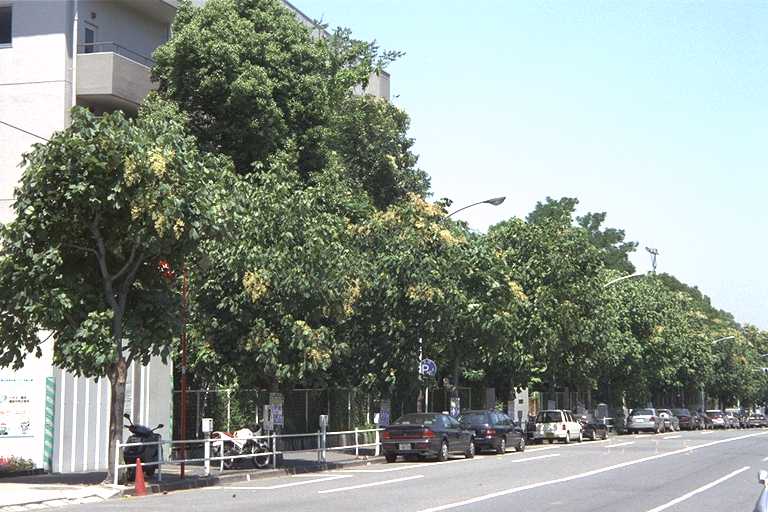
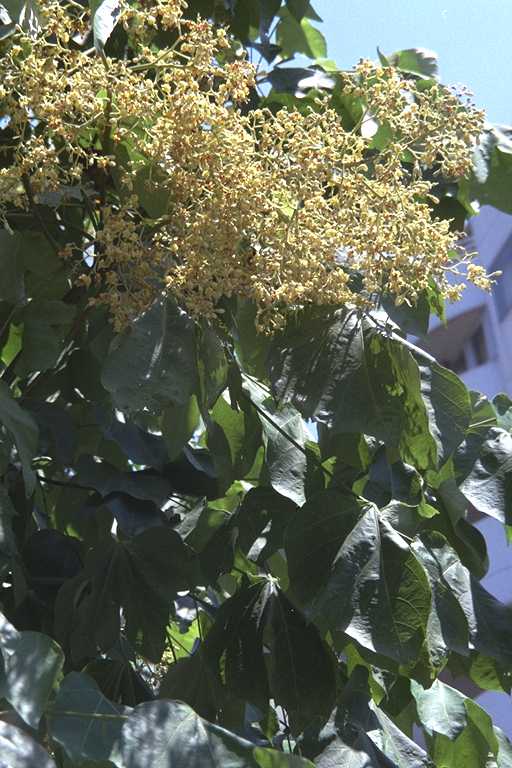
(Location : Kitaaoyama, Minato-ku)
15.horse chestnut
(Aesculus turbinata)-----Tochinoki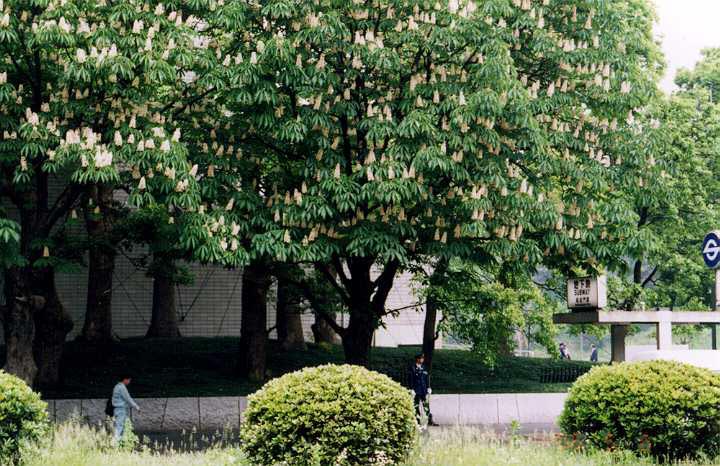 (Location : Kasumigaseki, Chiyoda-ku)
(Location : Kasumigaseki, Chiyoda-ku)

16.weeping willow(Salix
babylonia)">-----Shidareyanagi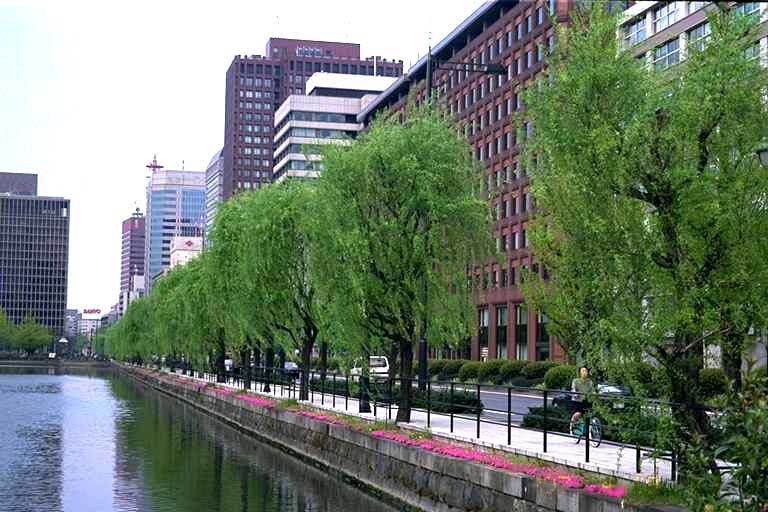
(Location : Otemachi, Chiyoda-ku)
17.crape myrtle(Lagerstroemia
indica)-----Sarusuberi
(Location : Takashimadaira, Itabashi-ku)
18.Quercus myrsinaefolia(Auercus myrsinaefolia)-----Shirakashi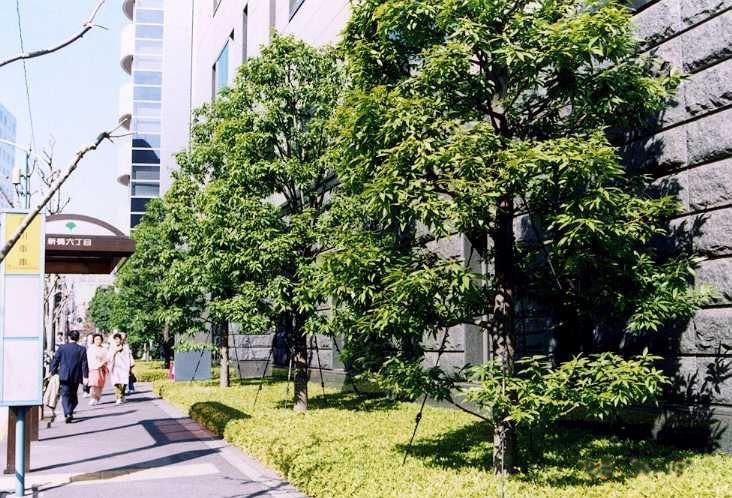
(Location : Shinbashi, Minato-ku)
19.chinese fan palm(Livistona chinensis)-----Biro
20.Chinese elm(Ulmus parvifolia)-----Akinire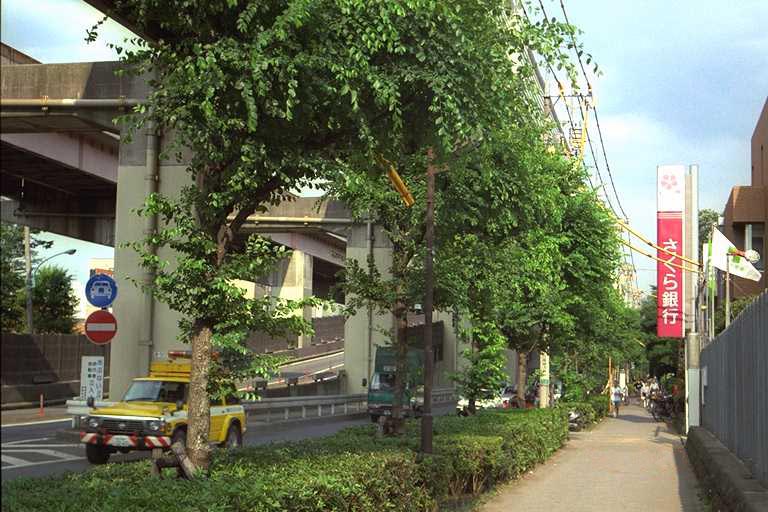
(Location : Nishidai, Itabashi-ku)
common camellia(Camellia
japonica)-----Tsubaki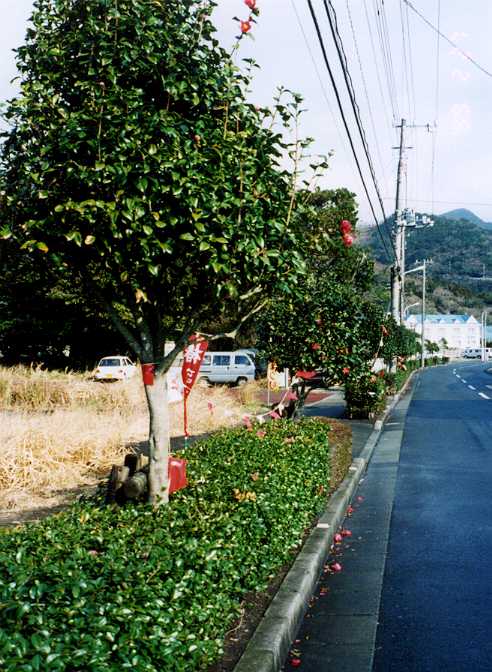 (Location : near Habu harbor, Oshima)
(Location : near Habu harbor, Oshima)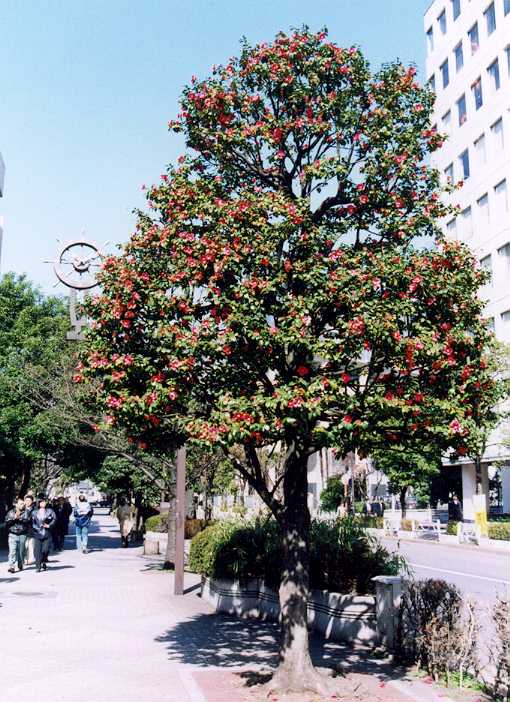 (Location : Kaigan-icchome, Minato-ku)
(Location : Kaigan-icchome, Minato-ku)
sasanqua camellia(Camellia sasanqua)-----Sazanka
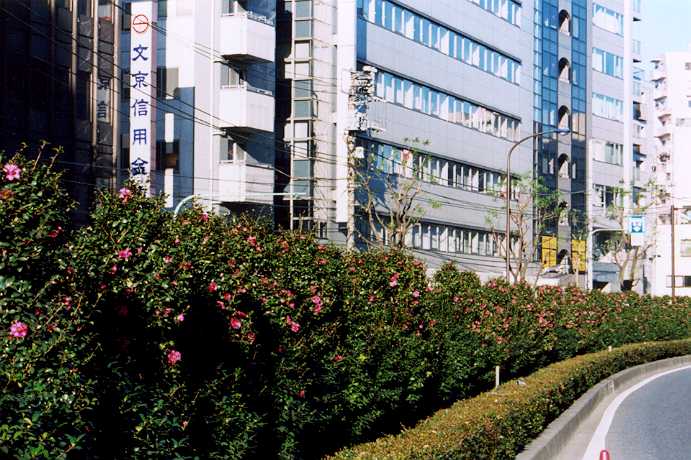
(Location : Koishikawa, Bunkyo-ku)
false acacia or black locust(Robinia pseudoacacia)-----Niseakashia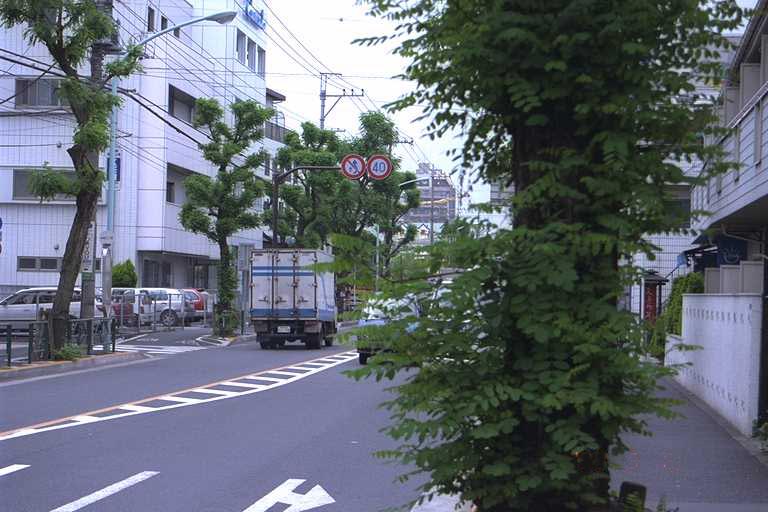
(Location : Chuo Street, Mitaka City )
ubame oak(Quercus phillyraeoides)-----Ubamegashi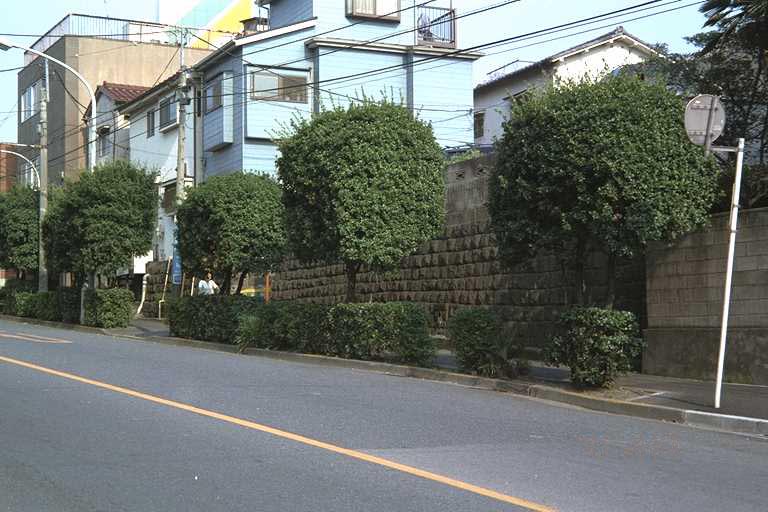
(Location : Ichigaya, Shinjuku-ku)
carolina poplar(Populus angulata)-----Karorinapopura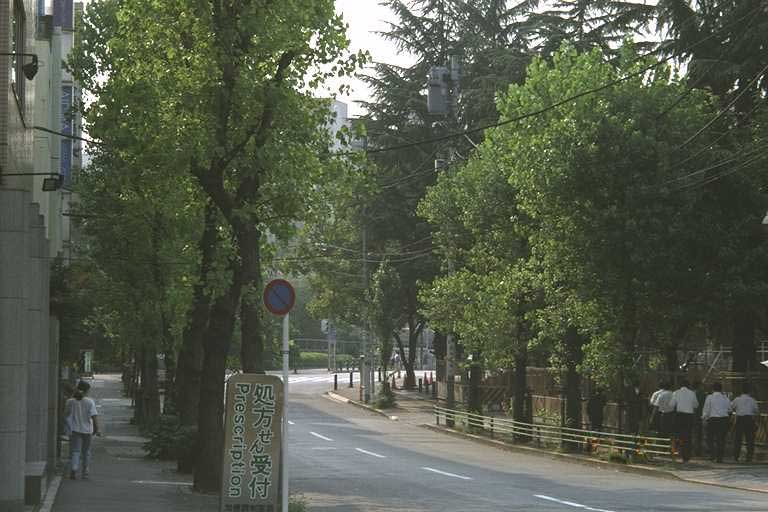
(Location : Tsukiji, Chuo-ku, near the St Kuke's International Hospital)
metasequoia or dawn redwood(Metasequoia
glyptostroboides)-----Metasekoia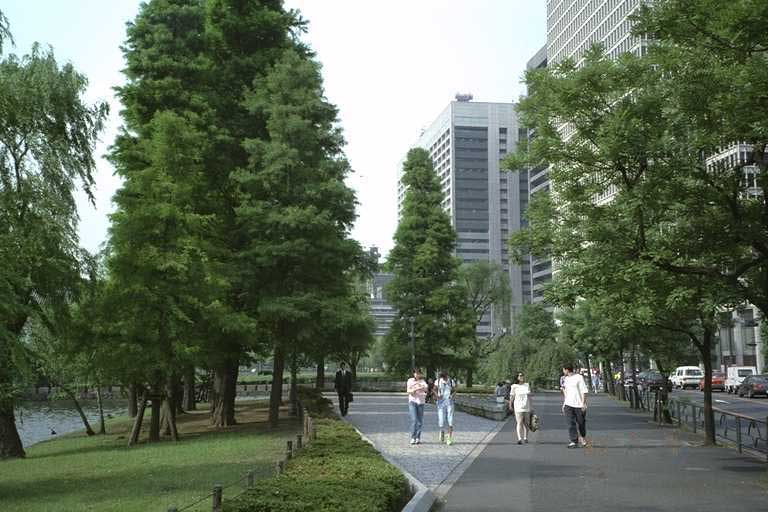 (Location : Otemachi, Chiyoda-ku)
(Location : Otemachi, Chiyoda-ku)
katura tree(Cercidiphyllum japonicum)-----Katsura
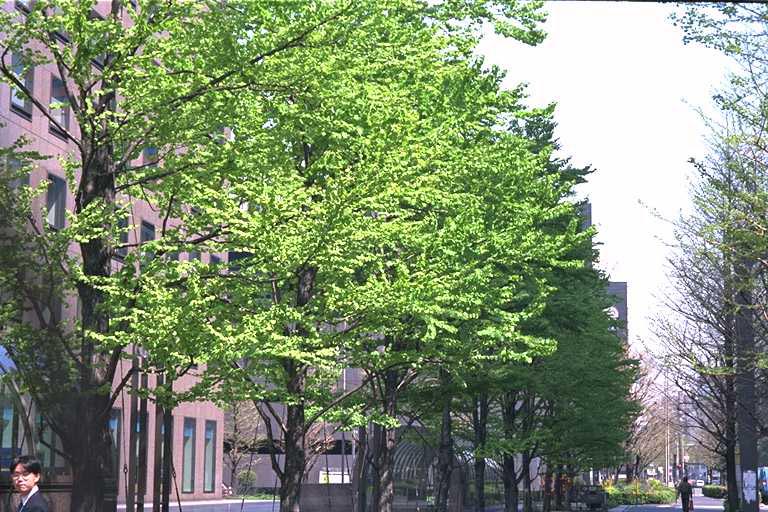
(Location : Otemachi, Chiyoda-ku)
Japanese ash(Fraxinus japonica)-----Toneriko
 (Location : Shiratori-2chome, Katsushika-ku)
(Location : Shiratori-2chome, Katsushika-ku)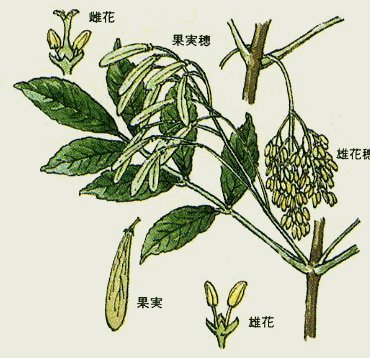
Japanese black pine(Pinus thunbergiana)-----Kuromatsu

(Location : near Fuchu Art Theater, Fuchu City)
cockspur coral tree(Erythrina crista-galli)-----Amerikadeiko
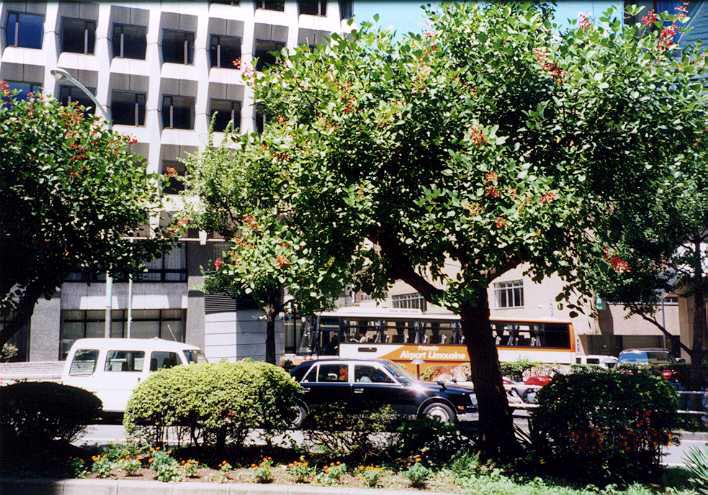 (Location : near the United States Embassy, Akasaka, Minato-ku)
(Location : near the United States Embassy, Akasaka, Minato-ku)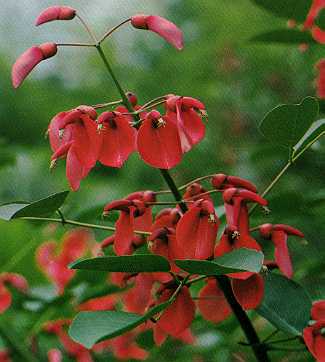
southern magnolia or cucumber tree(Magnolia grandiflora)-----Taisanboku
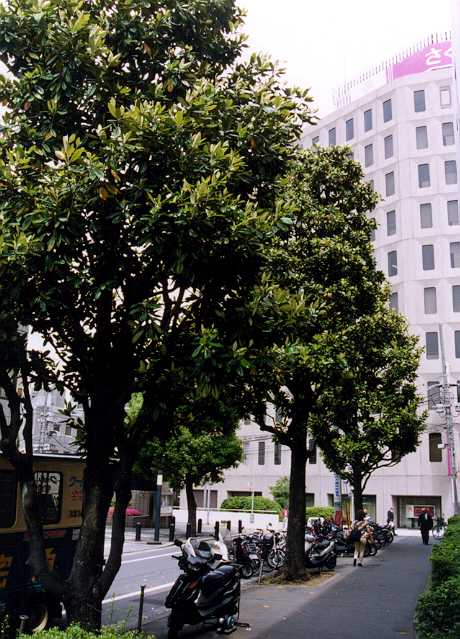
(Location : Near the JR Meguro Station, Meguro-ku)
tree of heaven(Ailanthus altissima)-----Shinju
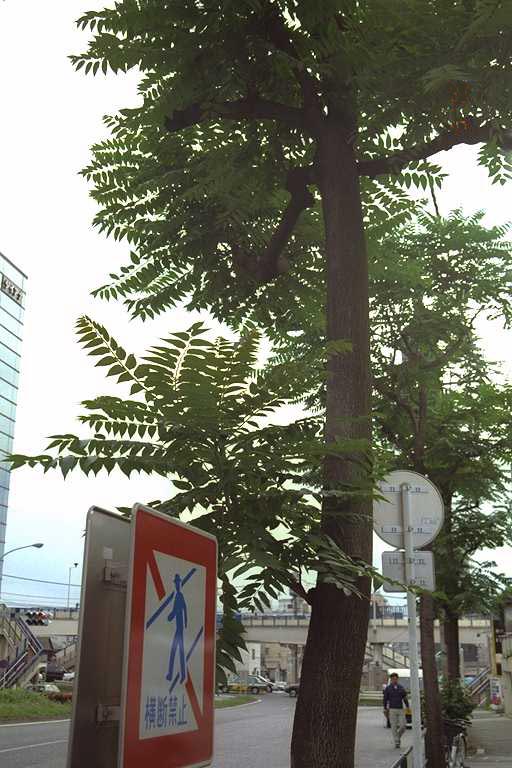
(Location : Near Yoyogi Park, Shibuya-ku)
desert fan palm ( Washingtonia filifera )-----Washintonyasi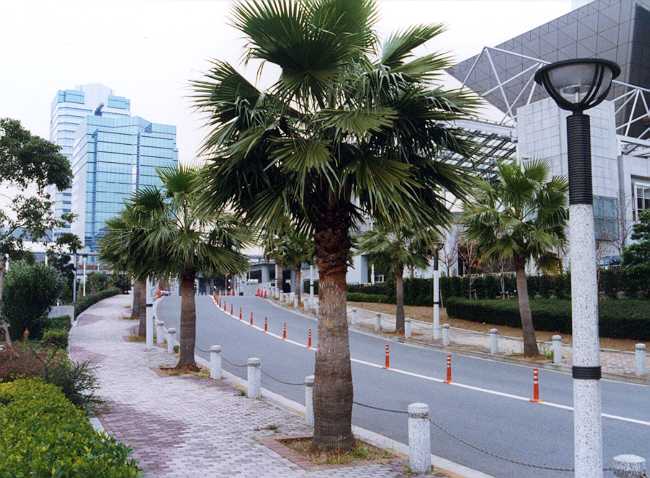 (Location : Ariake, Koto-ku)
(Location : Ariake, Koto-ku)
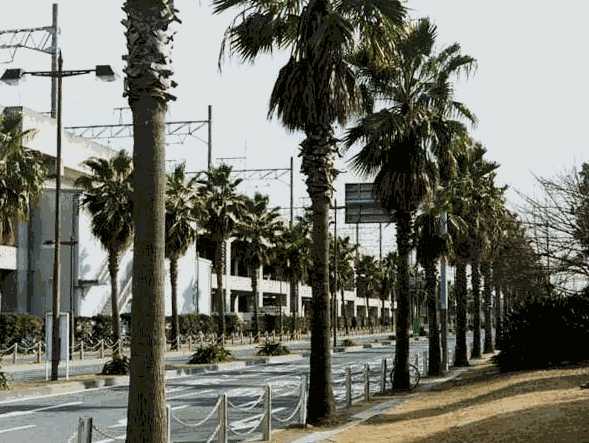 (Location : Rinkai-cho, Edogawa-ku)
(Location : Rinkai-cho, Edogawa-ku)
Japanese snowbell (Styrax japonicus )-----Egonoki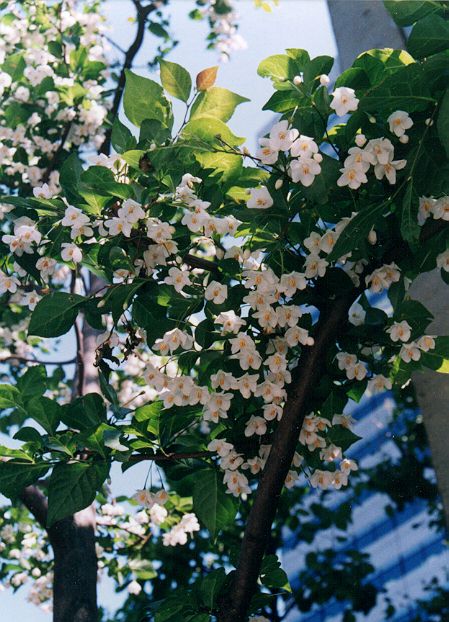
(Location : Shinjuku 1-chome, Shinjuku-ku)
olive (Olea europaea )-----Oribu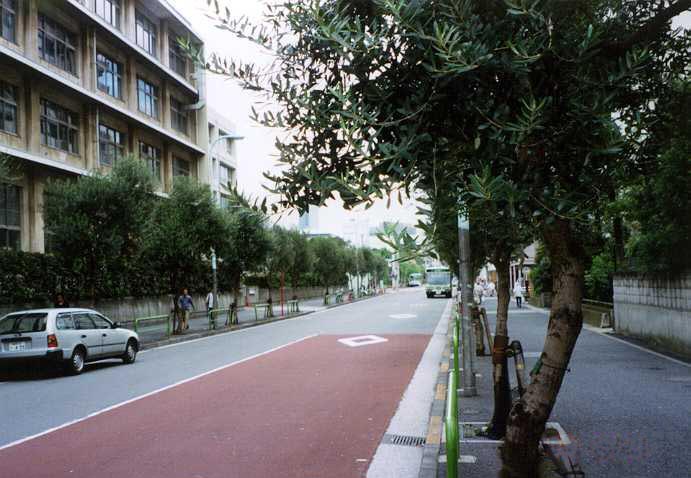 (Location : Tamachi 3-chome, Minato-ku)
(Location : Tamachi 3-chome, Minato-ku)
natsudaidai (Citrus natsudaidai )-----Natsumikan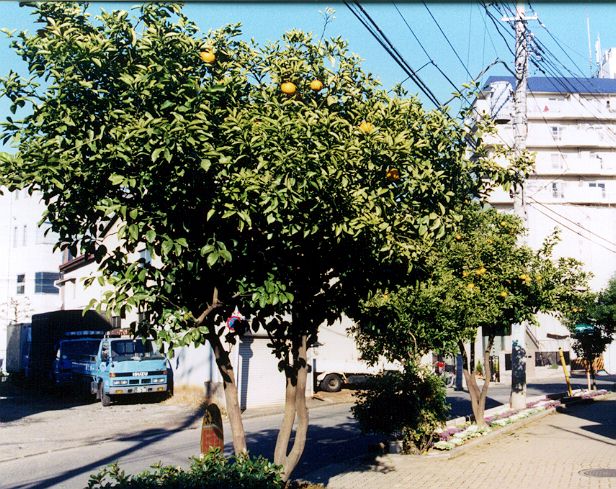
(Location : Shiratori 2-chome, Katsushika-ku)
fragrant snowbell (Styrax obassia )-----Hakuunboku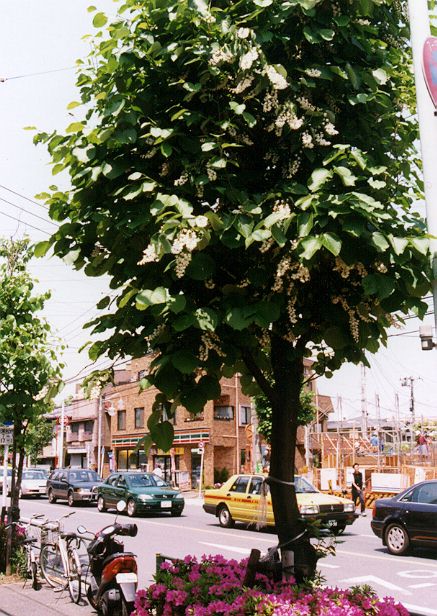
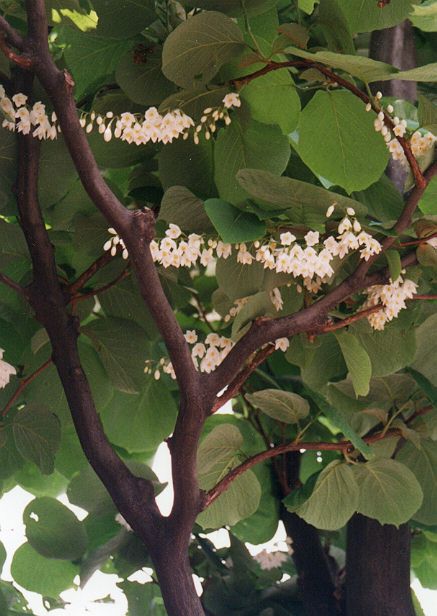
(Location : Eifuku 3-chome, Suginami-ku)
snow flower (Chionanthus retusus )-----Hitotsubatago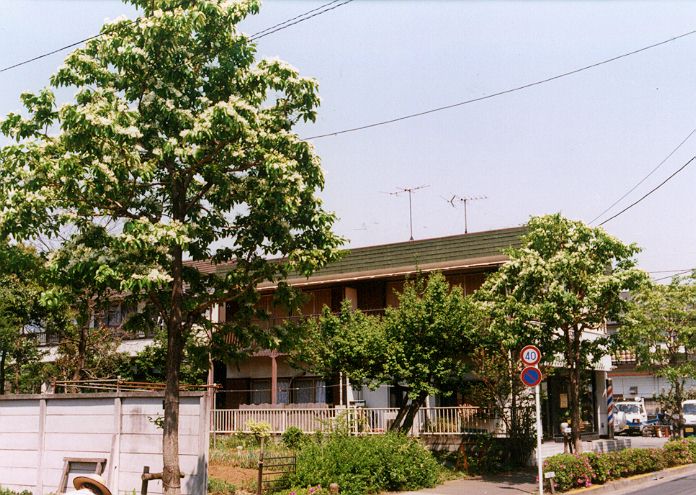
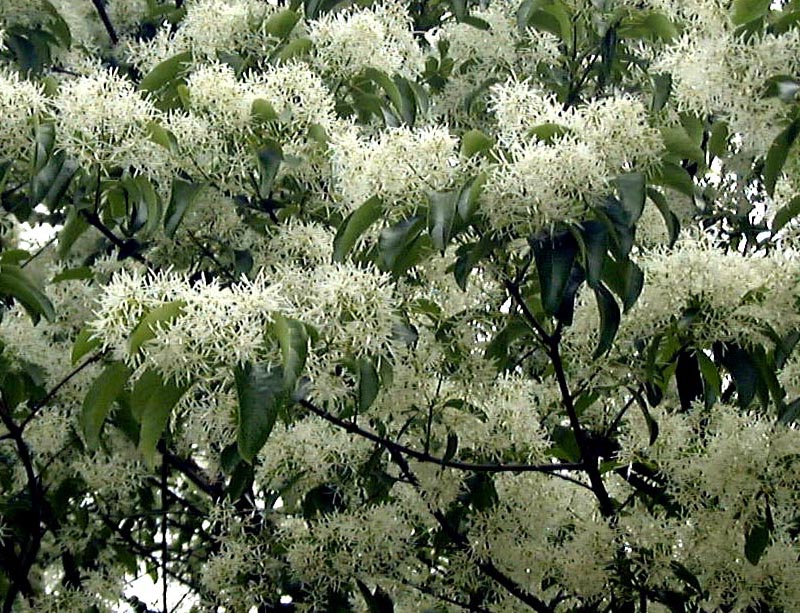
(Location : Nukii-kitamachi, Koganei City)
althaea, rose of Sharon (Hibiscus syriacus )-----Mukuge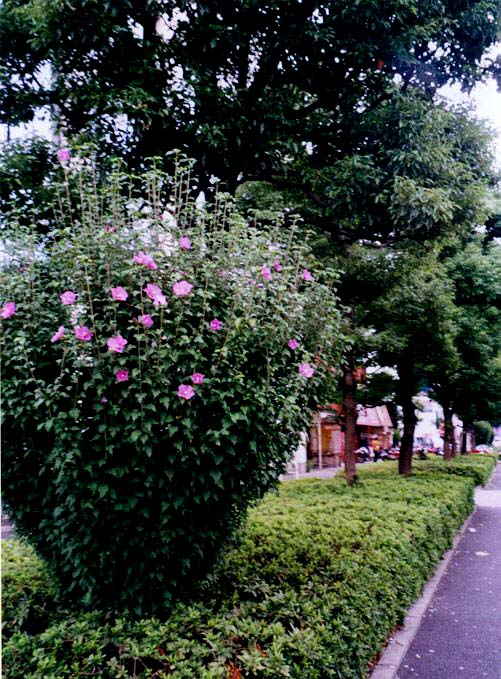
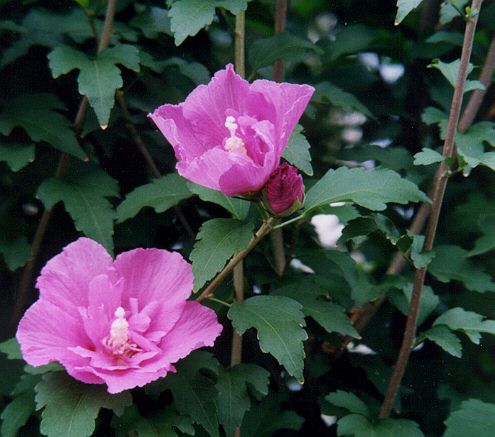
(Location : Hitotsuya 2-chome, Adachi-ku)
Chinese tallow tree(Sapium sebiferum)-----Nankinhaze
Nihonkoryu Ikebana School(http://
www.nihonkoryu.org)
Jomonjin(http://www.asahi-net.or.jp/~XR3F-MRY/)
Album of fallen
leaves(http://www.emiko.com/ochiba/)
Prunus
Database(http://www.db.its.hiroshima-cu.ac.jp/~kitakami/sakura.html)